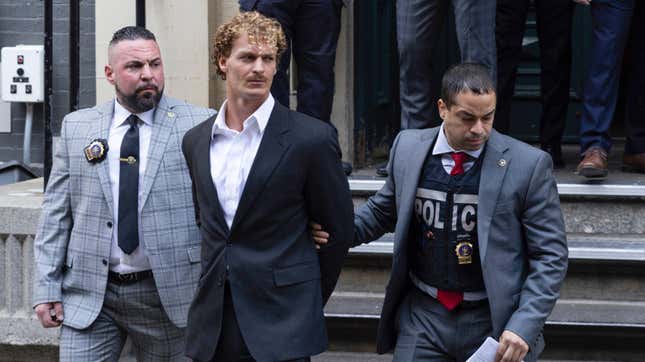Daniel Penny Says He Can’t Be Racist Because He Was Planning a Road Trip in Africa
Penny, who choked Jordan Neely, an unarmed Black man, to death for several minutes on a subway car, said the killing had "nothing to do with race."
Entertainment

Daniel Penny, the man charged with second-degree manslaughter in the video-recorded subway killing of Jordan Neely earlier this month, gave his first interview with the New York Post over the weekend weekend. And his comments were about as deranged as you’d expect coming from a man who thinks it’s fine to kill people who simply make you feel uncomfortable on the subway.
Penny, who held Neely—an unhoused Black man experiencing a mental health crisis—in a chokehold for several minutes, insisted to the Post that he is “not a white supremacist” and claimed Neely’s killing had “nothing to do with race.” As evidence of this, Penny revealed that before all “this” (his strangling an unarmed Black man on the subway) he’d been planning a “road trip through Africa”:
-

-

-

-

-

-

-

-

-

-

-

-

-

-

-

-

-

-

-

-

-

-

-

-

-

-

-

-

-

-

-

-

-

-

-

-

-

-

-

-








































